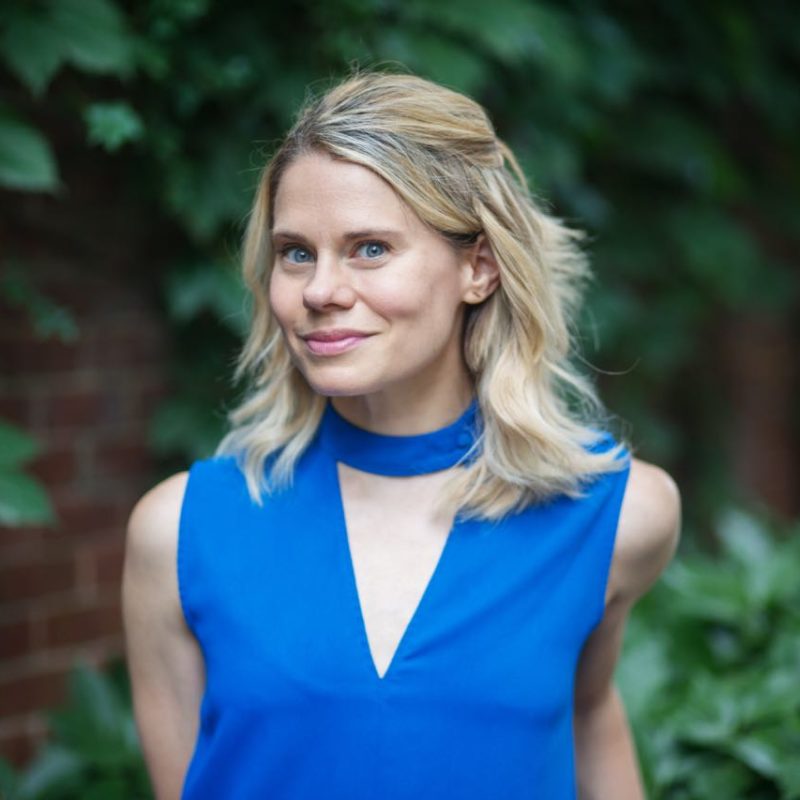Celia Keenan-Bolger: Three Years Later
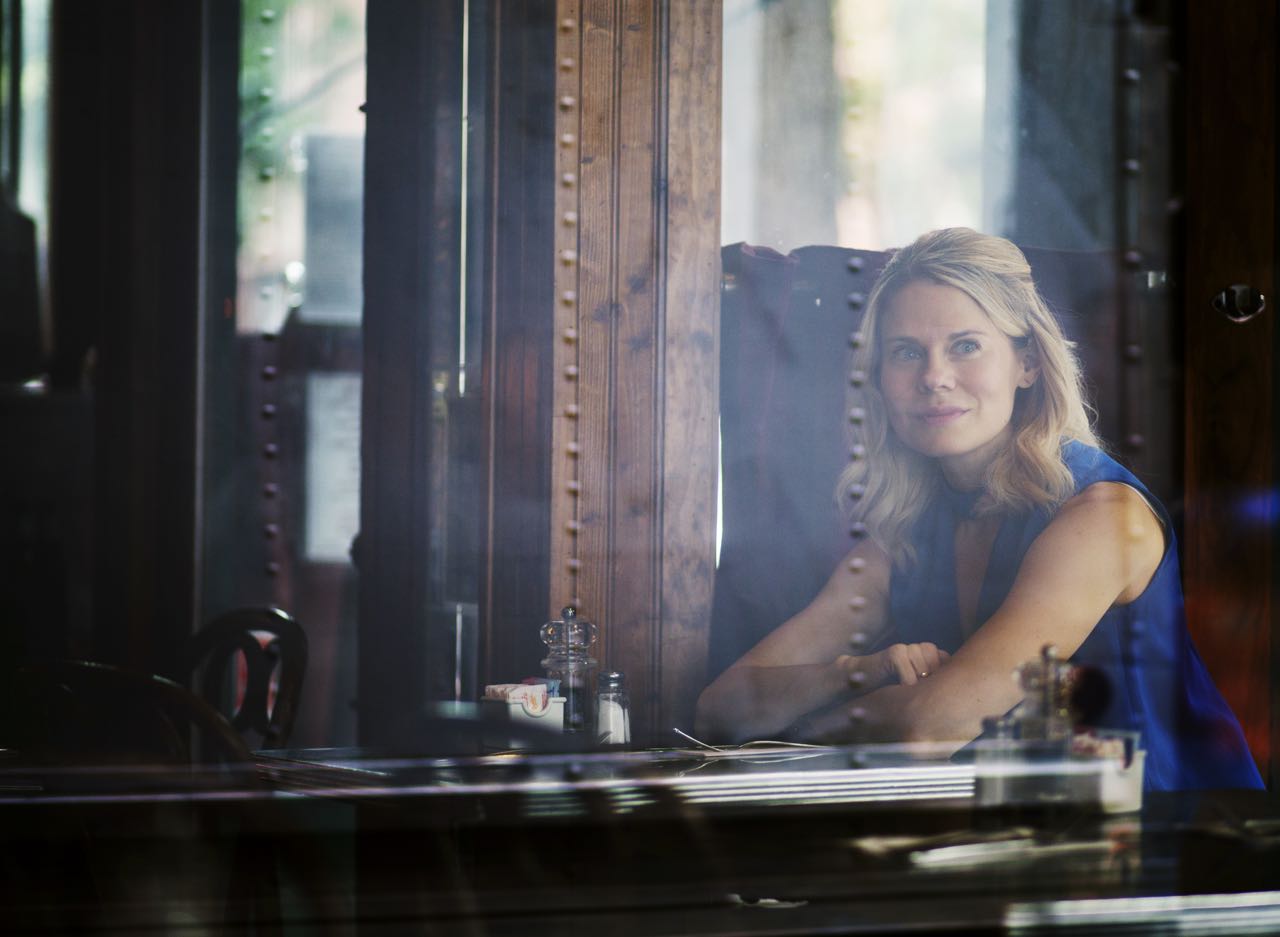
Written by Victoria Myers
Photography by Tess Mayer
August 1st, 2017
Existential questions onstage, more often than not, have been the terrain of male protagonists. In the new play A Parallelogram, currently playing at Second Stage Theater, Celia Keenan-Bolger plays Bee, a woman who is dealing with an existential quagmire: she can see what will happen in the future, but is powerless to change anything. Or she might be crazy. Bee is a character that requires a lot from an actress—the ability to balance metaphor with the plot. Since making her Broadway debut in 2005, Celia has established herself as one of the theatre’s most adept performers who can find both laughs and pathos in unusual places (it isn’t everyday that an actress goes from getting a Tony nomination for playing a middle school student in The 25th Annual Putnam County Spelling Bee to getting a Tony nomination for playing Laura in The Glass Menagerie). She is an active member of the theatre community and always up for raising awareness for a cause both through benefit performances and through her social media. She also happens to be one of the very first people who said yes to doing an interview with The Interval (almost exactly three years ago), and has remained a presence on our site, either spotlighting being a working mother, at protests, or assassinating a cactus. We recently spoke to her about her process as an actress, typecasting, being socially engaged, and more.
What was your process like for figuring out how to make a play about big, metaphoric, intangible things into something playable?
I think the good part is that it’s written well enough and the character is experiencing enough that the responsibility of how the story unfolds feels sort of secondary to what I was so interested in, [which is] who she was and what she was trying to process and how that made her treat other people. That was where most of my energy went during the rehearsal process, and then once we were in performances, understanding, “Oh, this is a really dense and nonlinear play, and is there a way that I can help the audience on this ride?” The audience sort of sees it through the old woman and the younger woman, and I feel like she’s good cop and I’m kind of bad cop. I’m generally an actor who feels like I want to be liked by the audience, and I recently saw A Doll’s House, Part 2, and one of the things I was the most moved by in Laurie Metcalf’s performance was that she didn’t give a shit what the audience thought about her. I was like, I think that might be useful for this character—or for Celia—to say, “Don’t try to take care of them. Just give this person the dignity that she deserves and go forth,” and so that was a part of the process.
The likeability thing I think is such a big thing for actresses in general. In an interview someone told a story about a director telling them, “In order for the audience to hear the information you’re saying, you have to be more likable.”
I wonder if men are given that same note. There’s this idea of a shrill woman or a combative woman that just makes us shut down, if we’re receiving that information, whereas with angry men we’re like, “Oh, yeah.” We immediately engage. I think probably those directors are right to say we have to figure out a way for the audience to be on board with this character, but I think, for myself, it was trying to not blunt the edges of a character in order to make them more likable. We can be many things at once, and that requires a lot. I think also, because I’m a person in life who’s a real people pleaser and wants to be liked, that it’s a different sort of journey for me to figure out what that looks like.
When you were doing that, did you sort of strip away certain mannerisms that you associate with yourself like, “These are things I do to be liked”?
I think I probably went very far in the direction of being like, “Who can I channel or what part of myself just doesn’t give a shit, and what does that look like?” I was like, “Just let me go here so I can sort of see the colors.” My husband came [to the show] and was like, “I feel like the enjoyment of sometimes not being nice is something that is very enjoyable to watch, and sometimes makes somebody not being nice a little more palatable so you can sort of have your cake and eat it too.” It was a really hard thing to learn, and because it is as technically rigorous as it is emotionally, you’re like, “I just have to get the words. I just have to get all of these words in my head,” and then you feel like you have to sort of learn the music of the play, which is very specific. Usually with other plays, you’re like, “Okay. I have the foundation,” and with this play, for whatever reason, I was like, “It’s so not even close to enough.” There’s so much that also has to be integrated into that, and so it was just a hard learn.
I feel like the shows that I’ve done since William was born have been things where I can get all of the work done between 10am and 6pm, and usually I wasn’t called all day every day. With this, I never leave the stage and I was called 10am to 6pm every day, and I would come home, play with my son, cook dinner, put him to bed, and then I would be like, “Now I have to learn my lines,” and my brain was like, “Are you crazy? I have no more bandwidth for the day.” And so, I did have a week where I felt like, “How am I going to do this?” That was a week of despair. But of course, John [Ellison Conlee, my husband] and friends were like, “You’re going to learn your lines. You just will,” and they were right. We have one more week of previews, and I feel it’s a play where the more you know, the more you don’t know. There’s so much that still needs to be mined, and that’s nice. I certainly prefer that to when you open and it’s like, “This is the play, that’s that.” I feel like this play really encourages the curiosity of both the actor and the character.
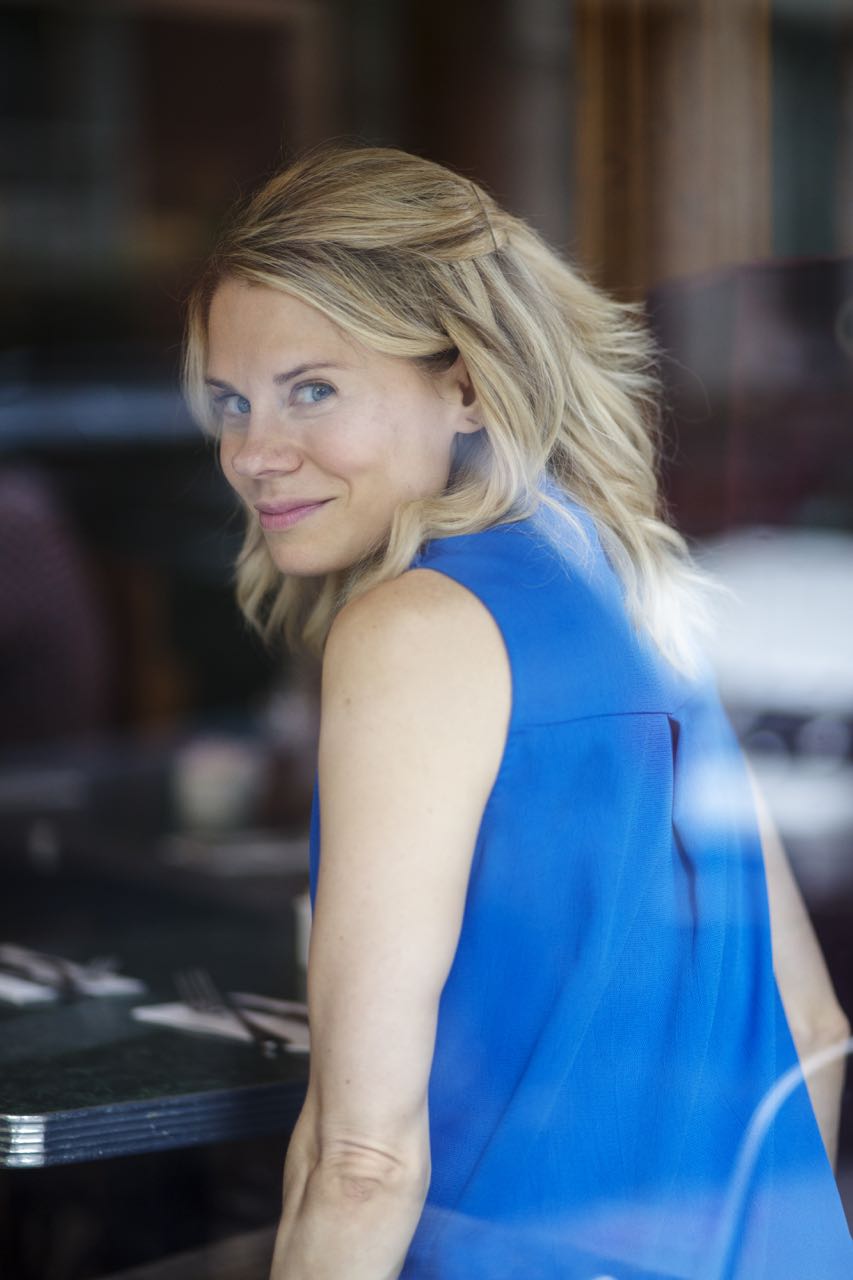
One of the things I found really interesting about the play is that you have a female protagonist who is concerned with these big, big issues, and she’s not necessarily being driven by certain plot-based things like we’re used to seeing.
That was part of what really drew me to the play. Also the ideas she’s in pursuit of and the answers that she’s looking for, in a lot of cases, really made me feel things while I read them. For the most part, I don’t necessarily line up with Bruce Norris’ view of the world, and I was really interested in that and tackling somebody who thinks really differently about the world. It made me think about when I was doing the play Our Town and how much you start to zoom out and say, “What is my purpose on this earth?” And to have a female protagonist asking those questions, in general, we just don’t have a lot of plays about that; they’re all reactions to men or family or some event. I liked the idea of playing somebody who didn’t reflect my own ideas, and seeing if I could make a good case for what she ends up with and believes, and I feel like I’ve gotten there. I think the play really makes an argument for being kind and it makes an argument for being honest, and I think as somebody who generally leads with kindness, I’ve started to think more about the ways that being honest can also be an act of kindness.
Was there a certain part of it that was the hardest for you as an actor and as a person to identify where your view and the play’s views differed and to find your way into that other way of thinking?
The play is written in a way that doesn’t place one argument against the other, and so places where I was like, “I don’t agree with this,” I was able to integrate it into the beginning of the play where she’s still questioning and not sure. I think what was the hardest for me was that I am a pretty emotional person and a pretty emotional actor, and I was getting the note a lot that, “What is being said to you does not reach you or make you feel things. And because you’re somebody who leads with honesty, it’s not about making people feel good, and therefore, if people say things to you that feel hurtful or tell truths that maybe you don’t want to hear, they don’t affect you in the way that they would affect me, Celia.” In the last quarter of the play, I had a long week where I was just like, “I feel so sad when I’m getting all of this information and so moved by what Steven is doing and by what Anita is doing,” and they were like, “Shut it down,” and that was really a new experience. For a few weeks I was like, “I’m just not going to listen that hard because I can’t hear that information and just be stoic.” And then, as we did it more, I feel like I was able to receive it without the legible face that I think I probably sometimes bring. I think that was the hardest part of the way that she is different from me, how this person experiences the world and hears what’s being given to her.
Was it a challenge to have your character’s point of view about herself, and then other characters also having a very strong, opposing point of view of her, and figuring out how to play that?
Yes. That is a piece of the puzzle that I still don’t feel like I’ve totally cracked. There are a number of times in the play where my character is referred to as depressed, and at the beginning, I said to [director] Michael Greif, “I just worry that I don’t have the metabolism onstage of a depressed person, and I’m trying to figure out how that looks on me.” What I came to is, “Other people can say it, but I don’t have to believe that it’s true.” But it was something of just feeling a little bit miscast, and feeling like I don’t know if this is actually such a great fit, because when I read it I was not like, “This is a role that was built for me.” Because the character has edges that are a little more jagged than what I usually play, it’s interesting to cast someone who has a more up vibe, but it definitely messed with my head for a little bit and continues to. I still feel a tiny bit like I can think of three people who would be better in this part than I am, and that’s just one of those things that you have to say, “I’m here for a reason, so that’s not useful in any way.” But when we started, physically I was trying to be this sort of sentient being sitting on the bed, not moving, and as it went on, I was like, “This is just not helpful. I have to lean in a little bit more and figure out a way to bring the character to me.” I feel like I’m closer, but it’s still a work in progress.
In the play, you have the framing device of Anita Gillette’s character, which adds an interesting layer to the perspective of who is telling the story.
Yes, and who we can be at one moment and not later in our life, and that we grow and evolve. You can meet this person at this point in the play, and that person can also exist later on. You do get this dual lens of these two women, which sort of colors all of it, even though for the first act you are not really sure what you’re experiencing. But as you’re putting it all together, you have two points of view that suddenly become a little bit more of one.
How was it working with somebody else playing the same character?
I have loved it so much. I really, really love her. I love her as an actor. I like being in scenes with her. I love being in the dressing room and asking her stories about her life, and I like her process. She’s 80 years old. She’s lived way more life than anybody else in that room. And it’s been such a great experience on those Wednesday and Sunday matinees where the audience is like, “We love this woman talking to us. We love having an 80 year old. We get to see ourselves reflected on the stage.” That character also comes around to deliver some news that people are like, “I don’t want to hear about that,” and I’ve been really interested in the ways the audience is so on board and then are like, “You duped me into thinking she was just a dotty old lady,” but it turns out she has some harsh truths to impart.
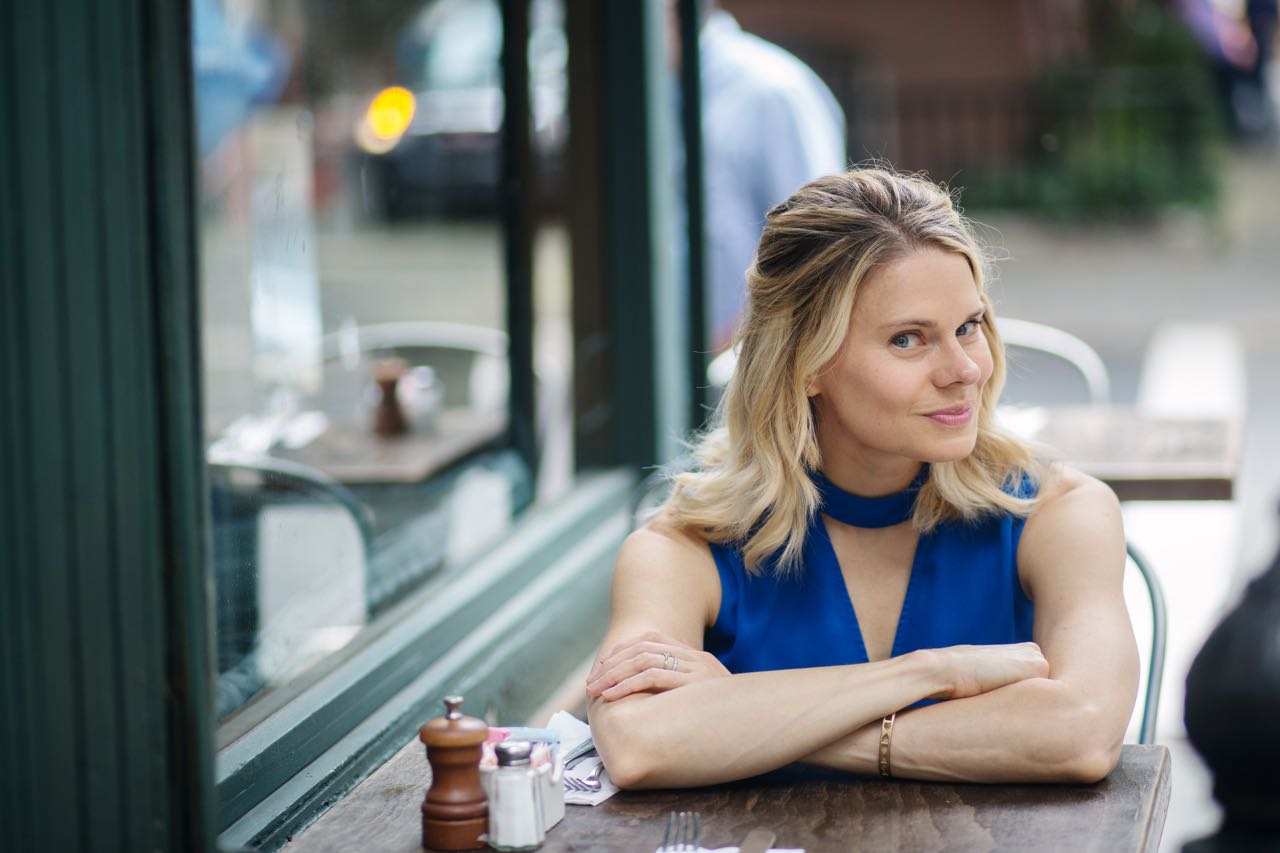
The first time we talked, we didn’t really get much into process, so I want to ask you about that now. When you get a script, what’s your first way into a character?
For this job, it was that it scared me. That’s not really the way in, but part of why I did it was that I felt like I hadn’t ever done something like it before and I wasn’t totally sure what to do with it, and so I felt like that was a good thing to try to tackle. As far as finding the way in, in general, I think usually there is something that just speaks to me. There’s something I identify in myself that I feel this character also has, that either is something I feel really strongly about or something that I feel I’d like to express, or in this case is something I hadn’t really expressed before that felt like something that could be out there and helpful to other people. I don’t really have a step-by-step for every character that I play. It really depends. With The Cherry Orchard, for whatever reason, I was super obsessed with the visuals and was doing a lot of cutting out from magazines, which is something I’ve not done in a very long time, and finding the visual vocabulary of what this person’s brain looks like and what her imagination looks like. For this character, it was way less of that and much more about trying to understand where this person was coming from, because it didn’t line up with me in a way that I feel like usually the characters that I play do. I think, also, the director can be really informative for me in how I go down the rabbit hole. In something like The Glass Menagerie, so much of my way into that character was through Steven Hoggett and being physical and what the physical vocabulary was, and then how that colored the rest of it. So it changes depending on the project.
Do you like to come into rehearsal with a lot of work you’ve done at home, or do you like to wait and see?
I usually am more of a wait-and-see person. I think with Chekhov I felt a need to do a lot of just refreshing and reading. I read a lot of books that Stanislavski had written. I read this great book about the company at Williamstown that were doing Chekhov for years and years. I just felt like I needed some historical context. But generally, I’m more of a let’s figure it out in the room kind of person. You can’t help but come into a rehearsal process with some ideas, but I think having done too much could be not helpful.
I can’t think of many examples of theatrical archetypes for the character you’re playing now, but there are in literature. Do you find it helpful to look at the way characters like this have been written about in the past?
Literature is so helpful because you’re using so much of your imagination anyway for how this person sounds, how this person moves, and you have a lot of context clues. I remember when I was first reading the play, tasking myself with just trying to read the play like a book and not making choices and instead being like, “What happens if I read the play as it is and see the ways that the writing colors my interpretation, not just of my character, but of all of the events that are happening?” It was really hard. I was not successful. I think if you’re an actor it’s just really hard to read something and not be like, “What is this moment?” But it was a good, helpful thing to do, and it did remind me of when you’re reading a really good book and you find yourself deep inside of it. It’s so many ideas about who these people are, having never seen any visuals or heard what that sounds like. But it’s hard to do with a play and I think that was a sort of new discovery.
Are you one of those actors who really likes to get out of the room and be onstage and have the audience as part of the process?
Michael Greif was asking me, “What kind of actor are you with the audience?” And he was like, “Do you think about the audience while you’re in rehearsal?” I’m sort of embarrassed to say, “Yes, I do.” I do think I try to figure out how to bring the audience along, and I don’t know if that’s a good thing or a bad thing. I don’t know that that’s really necessarily my job, but the part of me that likes meeting new people and likes being around people and is trying to read an energy and understand what different people need, to a degree, that’s the case with audiences too; understanding when they’re following, when they need a little bit of space to breathe, when they need you to just sort of rapid-fire go through things. I really like rehearsal and I really like being in front of an audience, and I’m grateful that things change as much as they do when you get in front of an audience. You learn a lot of things that you could never have known while you were building this structure where you’re like, “This is what it is,” and then you get in front of people and you’re like, “You guys, this is not what it is anymore. It turns out I was wrong.”
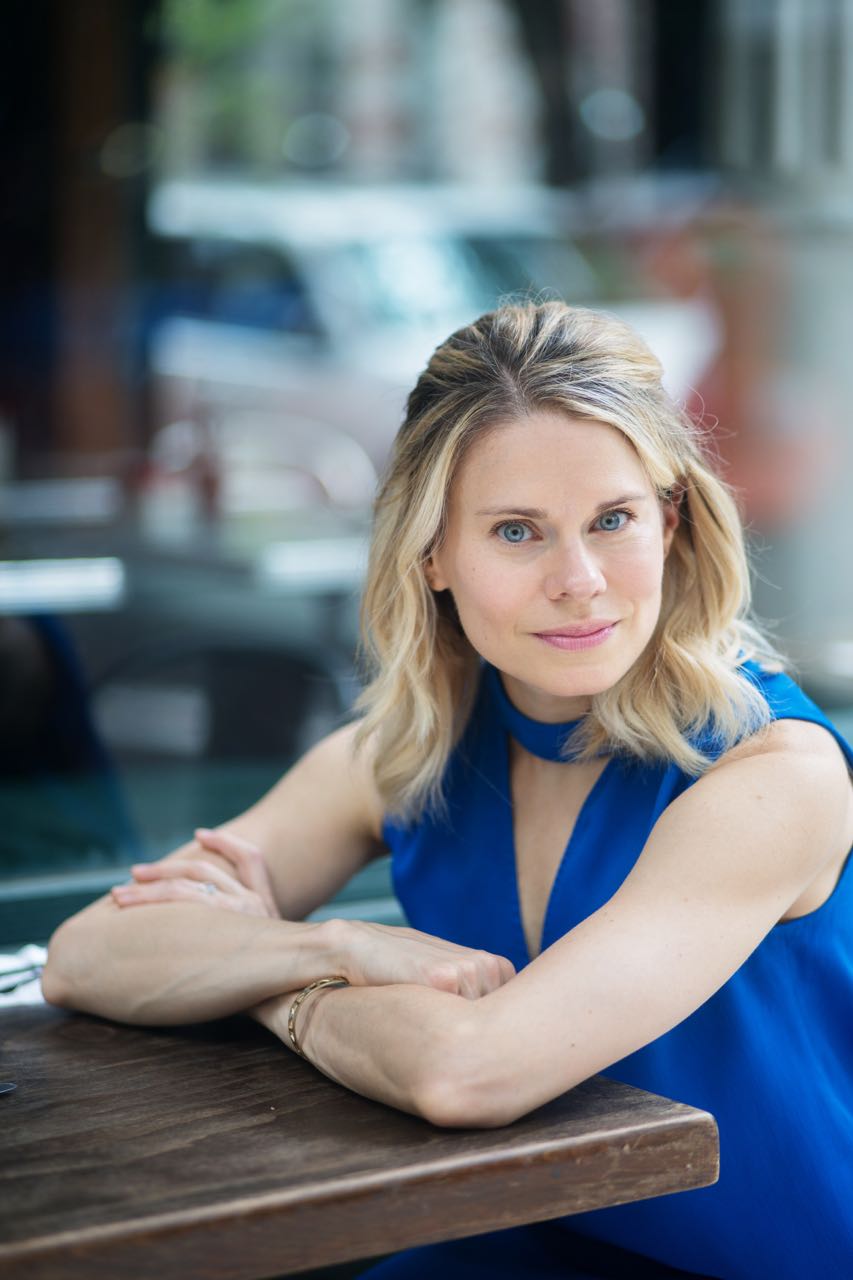
We touched on this a little during our first interview, but when you’re in an industry that’s so into typecasting and so into telling you how you’re seen, how do you still grow an artistic, creative person? What was your process like for navigating all that?
As I am getting older, I am finding that more difficult. This process in particular, I’m not proud to say, brought up a lot of insecurities in myself. The first time I read it, all of the mentions of this character being younger and prettier than the woman that Stephen [Kunken] was married to before sent me into a little bit of a tailspin. Any mention of body and not wanting to get fat, I was ridiculously obsessed with in a way that I was like, “This is so not useful to your process.” I’m just at a point in my life where sort of post-partum and having a two-year-old, I don’t feel particularly young and attractive. The experience of fighting those demons while you’re trying to make a character was detrimental. I don’t actually walk through my normal life feeling not good about myself, but there was something about this process that definitely put a magnifying lens on where I am in my life and how I feel and how that doesn’t line up with what the play is saying. I think I talked about it more with people and usually that’s something that I would’ve just kept to myself and just dealt with it. A nice part of being older was that I was just like, “This can be an insecurity that I’m going to put out there.”
I just got an audition for Our Town to play Mrs. Webb, and I was like, “I love that play so much and I really want to work with Ivo, but I’m just not sure I’m ready to play Emily Webb’s mother,” both in where I am just personally and also career-wise. I’m like, “Does that all of a sudden send some message that I’m a mother that can play a mother to a 16, 17-year-old woman?” In my life, I feel pretty good and feel pretty healthy and okay with where I am, but it does change once you are being held up to what roles are available to you or what kind of stories, and what kind of women you want to be playing. I’m going to guess that that’s only going to continue to be difficult. I’m really grateful that the theatre doesn’t seem to marginalize women quite as much as film, and that there are all kinds of great roles that continue to exist. I also think there’s this part of me that I’m both so grateful for and also feel a little challenged by, which is that I look a little bit younger than I am, and that getting to actually play a mother and getting to play someone my own age was such a great relief, I was so happy to get to do that, but I also want to keep working. And so, it’s this question of can I have both? I’ve had some parts where I’ve played young girls that were incredibly fulfilling, but there’s a point you get to where you’re just like, I don’t want to do that anymore. I have grownup things inside of me that I would much rather express.
When you’re in an industry where you have to, in some ways, be aware of yourself as a commodity, I would guess that has to be a very weird thing in terms of how it affects you and how you see yourself.
It is. And I think about trying to model good behavior for a child, and trying to model good behavior for the world, but particularly for my kid to see somebody whose work makes them happy and also who’s not tortured by stupid, shallow things that my brain can sometimes get attached to as a commodity in this business, and what that is going to continue to look like? And I feel like if I have another child and if that child is a girl, how much more responsibility I will feel to not just model good behavior, but to really try to feel like this is where I am and if that is not okay with this business, then I have to be okay with that as well. I think there is a part of me that’s like, if you don’t want me or if you don’t want what I have, then it’s probably not meant to be and I can live with that. I think it’s a little bit harder when you find yourself in situations where you’re like, you do want me but I’m not sure that I belong, and how do I sort of wrap my brain around that?
It was interesting to me before when you were saying that you didn’t think you were right for the part, because you have the part, so clearly other people did not think that. And I wonder if that is a thing that maybe women in particular do of saying, “Oh, no. This is not right for me because it’s so different than how I’ve been taught to see myself.”
It’s both external and internal. There is a way in which, as an actor, I feel like I have so much inside of me. I feel like I actually can do a lot of different things. Then when someone comes along and they’re like, “Here, come do this different thing,” I’m like, “No, no, no. You should get somebody else who’s better at doing that different thing.” You do have to do some work, both to show the world that you’re capable, but also inside of yourself to say, “This is what you’ve been saying you wanted, so if you spend all of this energy talking yourself out of why you’re well cast in this, you don’t get to spend all of that other energy being like, I wish I had more opportunities.” And as you get older, you are constantly reevaluating and reassessing where you fit in the business and what opportunities you’ve had and what opportunities you still feel like you’re looking for.
You’re a very socially conscious person. Do you think about, in the industry, what type of person you want to be in the community?
I’ve thought about this a little bit recently just with everything that’s happening in our country, and what I would be doing if there was no social media. What would it look like? Would it be more engaged than what I’m doing? I feel like I’ve been on the wave in the last 100 days of this presidency of being super active and then having a job and having to take a step back. I do feel like I want a part of my identity in this business to be someone that people can ask questions to and say, “What can I do about this?” or, “What meetings do I go to?” I would like to be a resource. I feel like what I’ve learned is that in this industry, particularly in the New York theatre community, is that people are very interested in being involved and generally don’t know how to do that, and so if there are ways in which I can give people a place to show up or tell them when to call their senators, I want to do that. I want to be that.
Certainly being a mother, I feel [strongly] about childcare. A lot of women who are mothers at a certain point, unless they’re independently wealthy, have to take a step back, because if most of your career is in the theatre and you are a downtown actor doing a lot of Off-Broadway work, you can’t afford to have a kid and make that salary. If there were childcare at rehearsal, that would be such a huge burden that would be lifted, and the pool of actresses that you’d be able to draw from would be greater. That’s a way in which I feel interested in—in addition to all of the other forces in the world right now—an actual thing within our business that could use attention.
I was going to ask you about that, and if you could change one thing to make it easier for parents, what it would be.
Sarah Ruhl won this award last year and I got to perform, and when she won the award she was like, “I’m giving half of this award money to a woman who has a child to have childcare. Part of this award is going to that.” And I was like, that’s it. That is the way that we get to have more women in the business, we get to have more stories, we get different perspectives than just a specific brand of woman. I think it’s hard, because also as a mother, getting things done and fighting for these things feels even harder. Because if I’m working and I’m trying to raise my child and fight for justice in the world, in our profession you can burn out, and so it’s figuring out how to try to balance all of that.
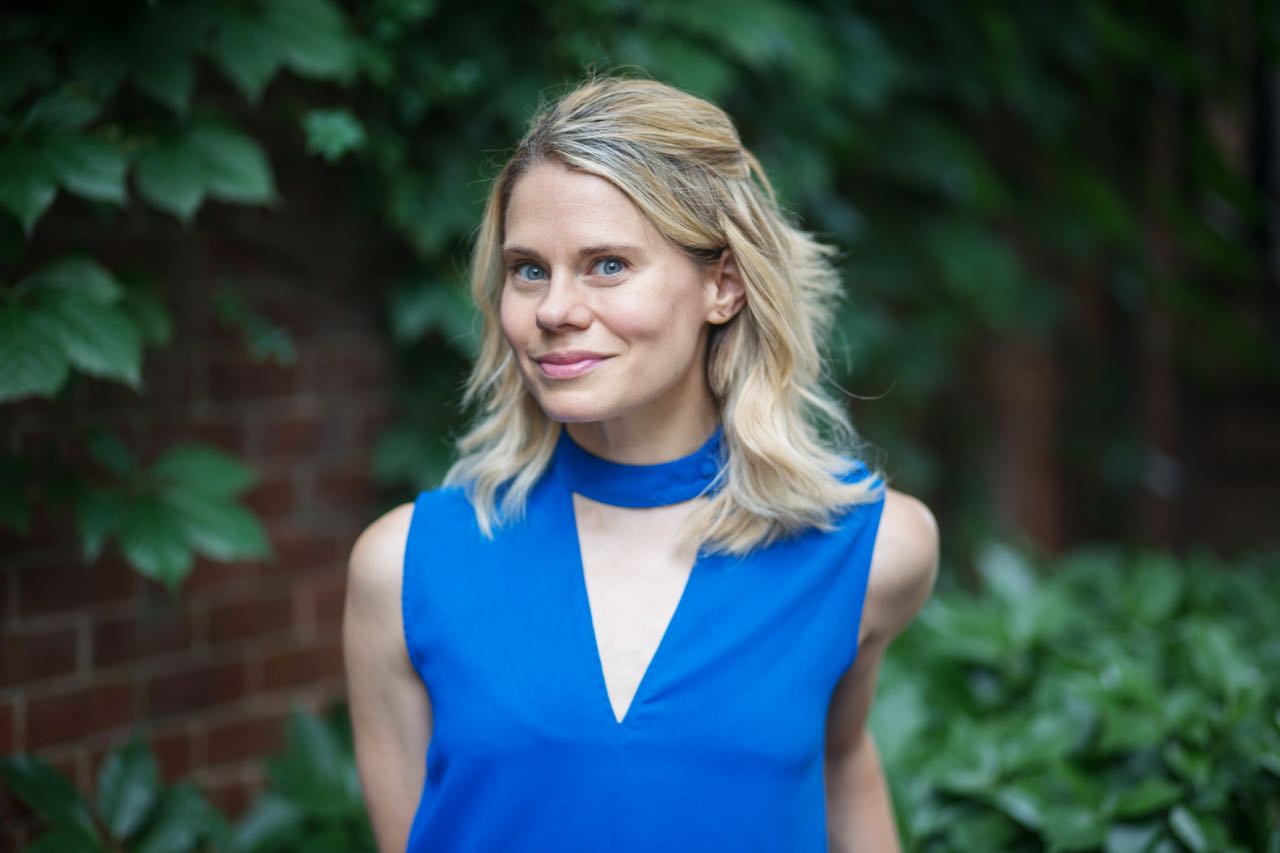
Going back to the earlier questions of how you navigate the business, on a personal level as somebody who’s been in the business for a long time, how do you maintain the ethics and morals you believe in, in a business that sometimes requires you to make compromises or play to the politics of it?
I don’t know how I was able to do it early on. Maybe it was having a mother that was just a really good role model of having a strong moral compass, and I saw that represented so much in our home that early on, I felt like I was able to choose projects that either I believed in, or it reflected what I wanted to put out into the world. I think if you start there, it’s hard to go back. And so I haven’t necessarily found myself in too many positions where I was like, “This will really cost me to do this,” or if I have felt that way, then the overwhelming feeling was don’t do it, even if it’s money, or it will be an opportunity that could turn into something else. That’s one of the ways that I’m super grateful to my mother for modeling good behavior and sort of leading with that.
When I was auditioning for Louie, they were like, “There’s going to be a sex scene,” and it was when I was pregnant, and I was like, “Can I really do that? Am I really going to do that?” And on many levels I was like, “I don’t know,” and then I started to think about it and I was like, “You know, the number of times I’ve seen any pregnant woman in a position where she is sexualized besides being in cute maternity clothes, but as an actual sexual being, that’s a story that I think I’m more interested in telling than just some random sex scene.” And it was odd, because you don’t get the sides early, and the casting director was like, “Just so you know, this is happening,” and there was a second where I was like, “Is this audition for me? Do I really want to do this?” and reading through it I was like, “I think I can make a case in my head for why this is a good and helpful thing and not just being exploited or feeling like I’ve been put in a position that I don’t feel comfortable in.”
Besides being geographically located in America, what does the idea of the American theatre mean to you or what do you think it should be?
I remember when I was doing The Light in the Piazza, Craig Lucas said something along the lines of, “We say that people go to the theatre to be entertained, but in fact, we go to the theatre to watch people overcome insurmountable odds and see the worst part of ourselves reflected, and then try to learn and reflect on ourselves and go forth.” I think there is something about the theatre, of sitting with a bunch of other people, that I value in a way that maybe I didn’t even value ten years ago. To spend two hours with a group of people sharing an experience and watching people try to do their best, right now, feels important in every city and state in our great country. They can be any story you want, and they can make us feel good and they can make us feel bad, but I think coming together right now is more important than it has ever been in my life.

